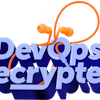AI is on the agenda in C-suites everywhere, and software development leaders know more than most about the potential gains leveraging AI tools can provide. Development and security teams spend a lot of their time carrying out repetitive, time-consuming tasks (only 25 percent of their time is spent writing code), so it makes sense to look for ways to relieve them of that burden so they can focus their time on more complex work where their skills are put to good use.
AI solutions, like vulnerability explanations, code change summaries, and automated tests, don't just carve out more time for developers. They also introduce efficiencies, increase productivity, speed up software production, make software safer, and improve developers' job satisfaction.
How does AI make a difference?
AI systems rely on large data sets to solve complex problems. They can learn from that information, identify patterns, and make decisions without the need for much input from us humans. Bringing these tools together with DevOps practices, like continuous integration and deployment, testing, monitoring, security, and analytics, can be a game-changer across the whole software development life cycle (SDLC).
Not only does it streamline DevOps processes, making it much easier for teams to quickly pick up on any problems in their codebase and deploy fixes, but with more insight into operations, continuous improvement is a breeze.
Let's take a look at some of the most common applications.
Improved planning
AI can make a big difference early in your SDLC by powering requirement analysis and planning processes. When it comes to identifying user needs, preferences, and pain points, there's often a vast amount of data to analyse. AI tools can do this instantly, helping developers better understand the context and make more informed decisions about the features they're building and the functionality they need.
Training AI tools with historical project data—such as team sizes, project timelines, and task complexity—means they can then help project managers and software development teams more accurately estimate project timelines and budgets, allocate resources accordingly, and identify any potential risks or bottlenecks before they occur.
Faster coding
By entering a plain text prompt describing what the code needs to do, generative AI (gen AI) development tools automatically create code, increasing a developer's productivity and optimising their workflow. They're trained on massive datasets of existing source code, largely from open-source projects. Thanks to natural language processing (NLP) and large language model (LLM) technologies, they're able to turn smart prompts into fit-for-purpose code.
These tools can also modernise legacy code and translate code from one programming language to another. While it's still necessary to check and refine AI-generated code, these tools are ideal for routine coding tasks, reducing the need for developers to context switch and saving their brain power for more intricate work. AI tools can also identify coding errors and flag potential security vulnerabilities. It's also ideal for prototyping where speed is of the essence, and developers need to rapidly iterate.
Tighter security
Embedding security into your SDLC is vital, and AI makes achieving this a whole lot easier. From detecting anomalies, threats, and vulnerabilities in development and production, to patch management and access control, AI can streamline the fundamental security processes your software relies on. With the help of automation, AI can generate a wide array of test cases and then carry out security testing for you. And predictive analytics can help to identify new types of attacks and adapt security controls in real-time to protect against them.
Better documentation
By leveraging AI-powered systems, developers can automate documentation generation for user, process, system, and technical documents, ensuring accuracy and relevance. These tools have the power to analyse code elements, maintain consistency between code and documentation (including legacy documentation), and create visual aids to simplify complex codebases.
Not only that, but AI tools can enforce coding standards, remove technical jargon to enhance readability through NLP, and provide personalised assistance tailored to developers' needs. AI can also facilitate interactive tutorials, integrate with development environments, and translate documentation into multiple languages, improving accessibility for the whole organisation.
Automated testing
We already touched on how AI supports security testing, but its capabilities go far beyond software security. By analysing large volumes of code and test data, AI tools can identify patterns and optimise test coverage with diverse and comprehensive test cases—some of which might be overlooked manually. It can also prioritise testing, optimising where resources are deployed.
By automatically identifying, flagging, and logging unexpected behaviours and bugs using algorithms during testing, more issues are spotted earlier in your SDLC, reducing the risk of them making it out to your end users. Developers can then quickly locate and fix those bugs, reducing debugging time, improving software quality, and ensuring deadlines are met.
Smoother onboarding
AI can expedite the onboarding process for new software developers in a number of ways so they can grasp coding conventions and best practices and get up to speed. Firstly, the documentation systems outlined above mean new starters have comprehensive and interactive tutorials to learn from—and access to all the latest information. AI-powered search platforms also help support knowledge exchange between colleagues.
Learning can be personalised to an individual's needs and experience, helping them to understand your organisation's unique software architectures and processes. For example, code explanation systems use NLP to generate human-readable explanations, helping your new devs understand the function and logic of each piece of code, even if they're unfamiliar with it. And personalised gen AI assistance and tools integrated right into your dev environment means that if they do run into trouble, there's real-time guidance and support at their fingertips, too.
Make the intelligent choice
At Adaptavist, we harness the power of the latest technologies to transform how organisations work—AI has become a big part of that. But we always put people first when it comes to people, processes, and technology.
That means working with you to understand your DevOps maturity, helping you develop practices that leverage the best AI advancements can offer, implementing new solutions that streamline your workflows, and training your teams to make the most of these new tools. Yes, an AI evolution is happening in software development, but you still need the right people and expertise to make it work for you.
Get in touch to learn more about how we can help you leverage AI across your SDLC.








